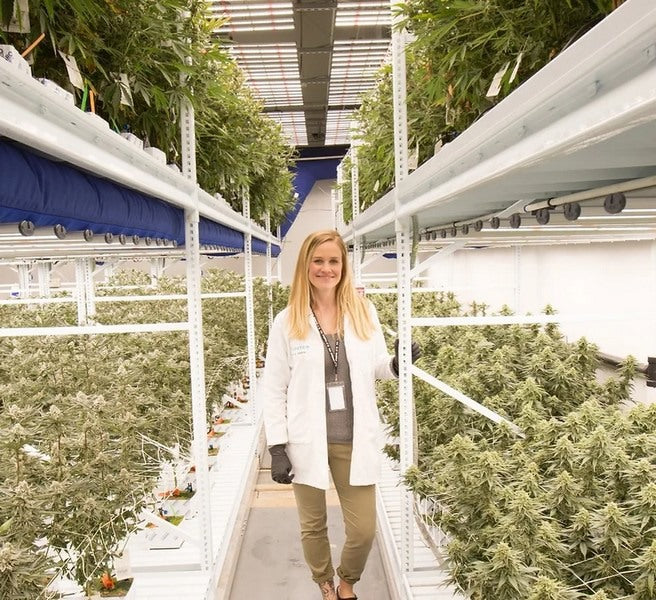
Compared to other horticultural crops, there is a lack of research that is relevant for cannabis growers. Yet two years ago, things seemed to look up. “There was a peak in cannabis research, with lots of universities getting involved,” says Dr. Allison Justice, Founder & CEO of Cannabis Research Coalition (CRC). Yet some of the universities the CRC worked with a couple of years ago have already fallen off the bandwagon. “The money is no longer there to support it. If there is funding for cannabis research in general, it’s usually for industrial hemp, not for medical and recreational cannabis.”
Turning science into profits
Yet that is where the CRC comes in. According to Allison, it might be more important than ever for companies to focus on research. “The companies we work with understand that the research we do is scientific yet practical. The science backs projects that companies can immediately use to create profits. As we call it: turning science into profits,” says Allison. “Right now is a time of economic downfall in the industry. Our research projects can help companies to be more efficient, more sustainable, to have cutting edge practices, and ultimately to reduce costs across the board.”
Luckily, Allison says that they’ve been receiving a lot of interest since the launch of the CRC last year. “It’s been exciting to see the progression. The memberships have taken off, with many interested in watching our videos and learning about our research. We also started organizing a live get-together every two months. It’s been great to get everyone together to openly share their challenges, from small farms to some of the biggest. Cannabis is not always an industry that likes to share, so it’s been nice to have these open discussions.”
Something else the CRC does is validation studies. “If a grower, for example, wants a specific study done for them, we can do it. We’ve noticed that this service has really been taking off. For example, companies that service traditional horticulture might be looking at getting into the cannabis industry. They may have a product they think will work great on cannabis. In theory, it should perform the same on cannabis as it does on apples or petunias. But you don’t really know until you’ve done work with the plant. The CRC has been able to provide that validation, an unbiased study that allows companies to feel confident to enter the cannabis market,” Allison explains.
Drying and curing
Yet, it’s not just cultivation-focused research. “In fact, probably over 50% of the research we do is focused on drying and curing. There is a lot about the post-harvest process that we still don’t understand.” For example, the CRC is currently doing research with Cannatrol. “Their drying and curing technology is very sophisticated. They know it has great results, but they want to know the scientific reason behind it. So we’re doing studies, looking at their system compared to traditional drying methods. We’re using a scanning electron microscope, with which we can take pictures that look at one individual trichome head. With pictures and data like that, we can really dig deep to understand the science behind the technology.”
For more information:
Cannabis Research Coalition
www.cannabisrc.org
Publication date:
https://www.mmjdaily.com/article/9570431/research-can-help-cannabis-companies-to-reduce-costs/